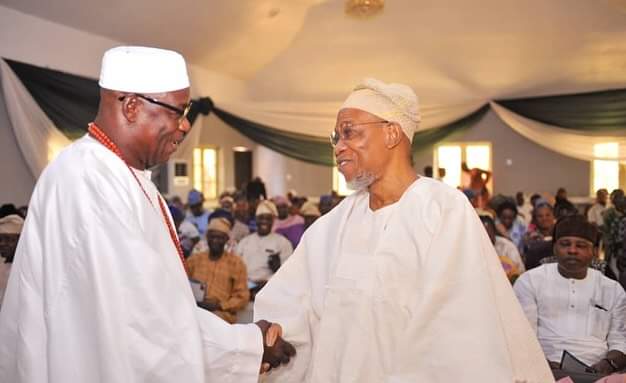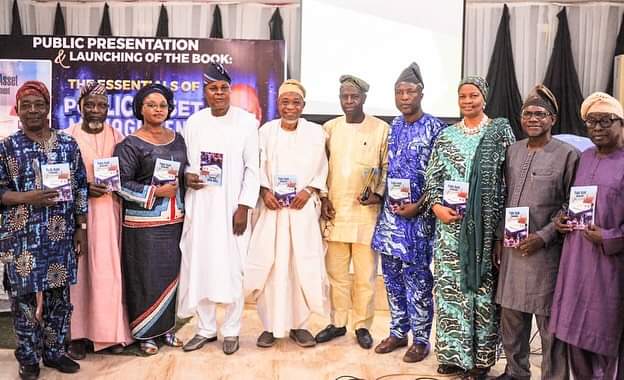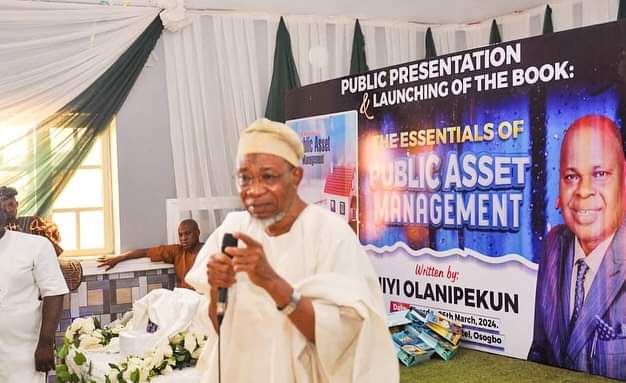SPEECH BY OGBENI RAUF AREGBESOLA, AT THE PUBLIC PRESENTATION OF A BOOK, ESSENTIALS OF PUBLIC ASSET MANAGEMENT, WRITTEN BY NIYI OLANIPEKUN, AT CITY DWELLERS HOTEL, OSOGBO, ON TUESDAY MARCH 26, 2024
Protocols,
PUBLIC ASSETS FOR ALL
It gives me great pleasure to be at this very important occasion, the launching and public presentation of the book, ‘Essentials of Public Asset Management’ written by Niyi Olanipekun. I must therefore thank the author for the kind invitation to this event.
I may not be an expert on the subject of asset management, but I have been privileged to occupy public offices three times – first as commissioner in Lagos, then as the governor of our dear state, Osun, and as Minister of the Federal Republic of Nigeria. These offices have put me in position of responsibility over public assets.

Public assets can be traced to the mythical social contract and the origin of government when individuals gave up the power of governing themselves and surrendered it to the sovereign who will govern on their behalf. The common public utilities like roads and water bodies became facilities used by members of the public, superintended and managed by the government on behalf of all members of the state.
Of course, public assets have grown with time to include cash, stocks, street lights, vehicles, stadia, infrastructure, buildings and even public toilets. Government is now defined in the adequacy and effectiveness or otherwise of these assets. Take roads for instance. These are essential for the seamless movement of persons and goods from one place to another, for economic and social activities. One of the ways in which the effectiveness of government is measured is the state of roads and this includes safety from accidents and attacks by criminals.


Vehicles are essential to the functioning of the government and not a privilege or for fancy. An official has to be at the right place and at the right time to be effective. Though there are often abuses but this will not vitiate the purpose. Government vehicles must therefore be sufficient and be well maintained.
Government buildings are a prime asset. A perceptive writer and editor with Time magazine, Nancy Gibbs, in the wake of the September 11, 2001 terrorist attack in the United States wrote that if you want to cripple an empire, it makes sense to main its cathedrals. The strength, power and prestige of a nation are revealed in the quality of government buildings. In many cases, these assets are a monument and a testament of the people’s creativity and sense of value. In some countries, private assets are acquired by the government and then designated as monument.
In the past, the most beautiful and the grandest building in any community used to be the king’s palace. This is why an invading and conquering power would first desecrate and then destroy the king’s palace to assert their conquest.
It must be noted that though these assets are named after the government, they are indeed owned by the people whom the government is established to serve. It is therefore self-defeating for the people to steal, vandalise or destroy public asset during riots and in a fit of public rage. It is the greatest act of self-harm. It is the most unwise thing to do.
These assets will be replaced anyway at public expense and the scarce resources that should have been devoted to other things will now be deployed for their replacement or restoration. Some may not even be easy to be replaced immediately and the public would now be denied of their use after the rage had died. It is therefore the responsibility of every citizen to protect public assets from theft, vandalism and destruction.


I must commend the author who was part of our administration and served in the management of public assets. His experience, no doubt, must have inspired this book. It is a collection for history and for the understanding of the craft of asset management. It will also help those in position to manage public asset have insight and gain from his experience. I greatly applaud his effort and recommend the book for all.
I am asking as well that those who occupied positions of responsibility in government to also put their experience together in a book for the public to drink from their fountain of wisdom.
I thank most sincerely all our people, associates, associations, groups and individuals who have come here to honour me with their presence, as I thank you all for your kind attention.
Osun a dara!



